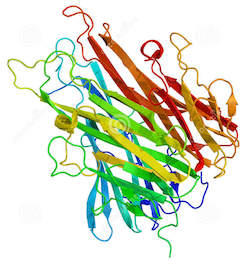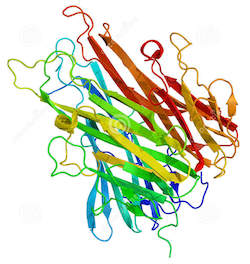 Editor’s Note: A member of the PRP (email) Support Group posted the following message to the PRP-L List which prompted a response from a fellow PRP patient.
Editor’s Note: A member of the PRP (email) Support Group posted the following message to the PRP-L List which prompted a response from a fellow PRP patient.
Original Post
“For those who may have missed or who need the reminder, here is a published article that reviews one category of PRP treatment and examines whether it is effective.
“This article was based upon an extensive review of medical literature and databases for evidence of effectiveness with TNF antagonists in the treatment of adult PRP.
“TNF is known as Tumor Necrosis Factor and includes treatment medications such as: Enbrel (etanercept), Humira (adalimumab), Remicade (infliximab) and Simponi (golimumab). Â It is believed these may impact the rapid growth of skin cells and/or damage to joint tissue. However, research evidence is lacking.”
To this point the information was spot on, according to Glen Misek. However, he took exception to what followed.
“This literature and data review found insufficient evidence regarding TNF value or its effectiveness in treating PRP.  The authors officially concluded: “no firm recommendations could be made about the management of pityriasis rubra pilaris with TNF-antagonists on the basis of the existing evidence.†Authors were initially quite hopeful something would stand out – but not for now.”
Glen suggested that reading the actual Abstract would result in an alternate interpretation. Let’s do just that.
ABSTRACT
A systematic review of the literature on the treatment of pityriasis rubra pilaris type 1 with TNF-antagonists.
Authors: Petrof G1, Almaani N, Archer CB, Griffiths WA, Smith CH.
BACKGROUND:
Adult pityriasis rubra pilaris (PRP) type 1 is a rare chronic papulosquamous disorder with clinical and histological parallels with psoriasis. Treatment is challenging and recent case reports suggest a potential role for tumour necrosis factor (TNF) antagonists.
OBJECTIVES:
Our objective was to systematically review the literature for evidence of efficacy of TNF antagonists in the treatment of adult PRP.
METHODS:
We performed a systematic search of the Cochrane library, EMBASE, Pubmed and MEDLINE databases. We defined diagnosis of PRP, classified clinical response and whether this was clearly attributed to TNF-antagonists. We also reviewed disease, treatment duration and follow up.
RESULTS:
Sixteen articles were selected for detailed review. From these, 12 articles (13 cases) met our predefined criteria and were included in the systematic review. The authors identified two more cases from their personal archive. A total of 15 evaluable cases were included for analysis. Twelve showed complete response (CR) (80%) to TNF-antagonists with a mean time to maximal response of 5 months. In 10 of the CR cases (83%) this was clearly attributable to TNF antagonist therapy.
CONCLUSION:
These data indicate that TNF-antagonists may be of value in treating adult type 1 PRP refractory to other systemic agents, but selective reporting bias, together with the lack of standard diagnostic criteria and established spontaneous resolution in PRP, prevent any firm recommendations on their place in management.
© 2012 The Authors. Journal of the EADV © 2012 EADV
EFFICACY OF TNF ANTAGONISTS
The conclusion presented by the PRP (email) Support Group subscriber was clear and unambiguous: “Authors were initially quite hopeful something would stand out — but not for now.â€
Glen, a subscriber to the PRP (email) Support Group and member of the PRP Facebook Support Group, disagreed.
“Think about it,†he notes. “Twelve cases or 80% showed complete response to TNF-antagonists with a mean time to maximal response of five months. Would you gamble on a drug with odds like that? 80% in five months?â€
“Not everyone in the PRP community is accepting that TNF therapy has proven effective for many,†Glen continues. “There is general agreement, however, that a broader discussion and more research is needed. In many ways, this is disappointing. Let’s be clear on this, these small studies — while not definitive — have resulted in a positive treatment trend.
We need to be more open-minded about biologics and less fearful. The PRP community continues to provide anecdotal evidence that biologics can be remarkably effective.
The message we should send is a message of hope rather than fear.
As published in On the Road … September 2015
